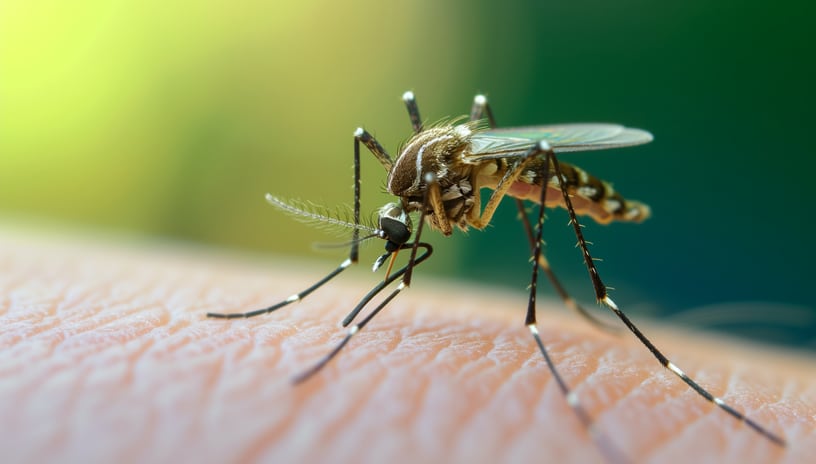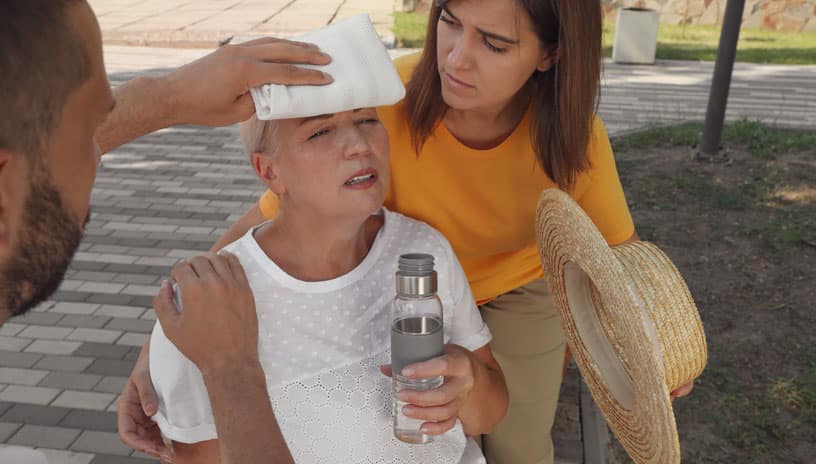Mosquito Season Intensifies in Autumn
The Illinois Department of Public Health (IDPH) has recently reported the first confirmed case of human West Nile Virus (WNV) in Illinois for 2019. The individual, a resident of Chicago, IL, is 70 years old.
While many people anticipate mosquito activity to decline in autumn months, this time of year is actually the most intense for the spread of West Nile Virus (WNV) through mosquito bites. According to the IDPH, there are currently 31 counties in Illinois with confirmed WNV cases. In 2018, IDPH reported 176 human cases of West Nile Virus in Illinois, including 17 deaths.
For most people, symptoms of WNV usually occur three to 14 days after being bitten by an infected mosquito. The illness often appears as a mild case of influenza with fever, nausea and muscle aches. In some people, the symptoms of the infection won’t show at all. However, people over the age of 60 or those with a compromised immune system may be at risk for severe illness, including meningitis, encephalitis, coma or even death. All individuals who have been bitten by a mosquito and are ill should seek the attention of a medical provider.
WNV is deadly to horses. Equine infection can be prevented through annual WNV vaccination. Emptying and cleaning animal water tanks routinely will reduce the presence of mosquito eggs. Horses with suspected infection from a mosquito bite should be evaluated and treated by a qualified veterinarian as soon as possible.
The Moultrie County Health Department (MCHD), along with the IDPH and county health departments throughout the state will continue diligent surveillance and control efforts aimed at reducing the threat posed by mosquitoes, WNV, and other vector-borne diseases. Moultrie County residents who observe a sick or dying bird should contact the Moultrie County Health Department. The MCHD will collect the remains of eligible bird specimens and submit them to be tested for WNV.
Most importantly, WNV can be reduced by following some simple tips to decrease the number of mosquitoes around your home and the risk of being bitten by these summer pests. The Illinois Department of Public Health recommends practicing the three “Rs” – Reduce, Repel and Report.
REDUCE your exposure by avoiding times when mosquitoes are most active between dusk and dawn.
- Check your window screens for holes or tears where mosquitoes may find their way into your home. Try to keep windows and doors closed during the night when mosquitoes are feeding.
- Dump standing water where mosquitoes can breed or lay their eggs. These places may include birdbaths, ponds, flower pots, wading pools, old tires and any other receptacles where water may pool. It takes approximately seven days for a body of water to produce an egg to become a mosquito so by changing the water of a wading pool or birdbath each week, mosquito larvae can be killed. Stock a pond with fish or use a water fountain. Mosquitoes cannot lay their eggs in water which moves, and goldfish and fresh water minnows feed on mosquito larvae.
- Use a low-toxicity, earth-friendly insecticide such as natural pyrethin sprays (made from chrysanthemums) or Neem oil to control mosquitoes.
- REPEL mosquitoes when you are outside during their high volume hours.
- Wear shoes and socks, long pants and a long-sleeved shirt when you are outdoors.
- Apply a mosquito repellent which contains DEET, picardin, oil of eucalyptus or IR 3535, according to the label instructions. Remember to reapply if you are outside for a long period of time.
- Come inside if the mosquito activity is heavy.
- REPORT heavy mosquito activity to your municipality in communities with organized control programs.
- Call the Moultrie County Health Department if you find a dead nesting bird on your property.
- Report a sick horse to a large animal veterinarian.
For additional information about WNV, please visit web sites at the Illinois Public Health http://www.dph.illinois.gov/topics-services/diseases-and-conditions/west-nile-virus or the CDC at https://www.cdc.gov/westnile/.
Contact the Moultrie County Health Department at (217) 728-4114, Monday through Friday, 8:30 a.m. – noon and 1 – 4:30 p.m. with questions about the West Nile Virus or to report a dead bird specimen.






